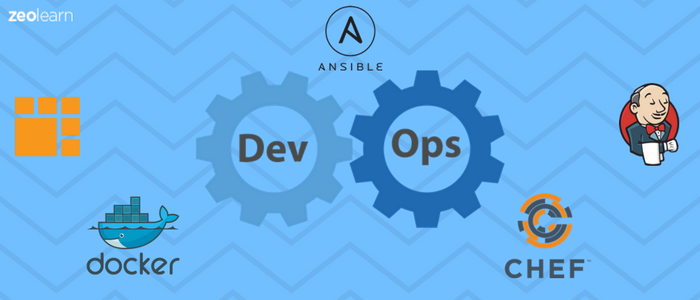Cloud and DevOps: Empowering Success with Essential Tools
Cloud computing and DevOps have become instrumental in driving innovation and efficiency in modern software development and IT operations. The combination of cloud technologies and DevOps practices enables organizations to deliver high-quality software at an accelerated pace. However, the success of cloud and DevOps integration heavily relies on utilizing the right set of tools. In this article, we explore the essential tools that make cloud and DevOps excel, empowering organizations to achieve their goals effectively and efficiently.
Infrastructure as Code (IaC) Tools:
Infrastructure as Code tools such as Terraform and AWS CloudFormation are essential for defining and provisioning infrastructure resources in a declarative manner. These tools enable teams to automate the provisioning and management of cloud resources, ensuring consistency, reproducibility, and scalability. With IaC tools, organizations can easily manage infrastructure configurations, version control them, and make changes through code, promoting collaboration and simplifying deployments.
Configuration Management Tools:
Configuration management tools like Ansible, Puppet, and Chef automate the configuration and management of software applications and infrastructure. These tools enable organizations to define and enforce desired states across their infrastructure, ensuring consistency and reducing manual effort. Configuration management tools automate tasks such as software installations, configuration updates, and system maintenance, making it easier to manage large-scale deployments and maintain infrastructure integrity.
Continuous Integration and Continuous Delivery (CI/CD) Tools:
CI/CD tools such as Jenkins, GitLab CI/CD, and CircleCI automate the building, testing, and deployment of software applications. These tools integrate with version control systems, allowing developers to trigger automated build and test processes whenever changes are pushed. CI/CD pipelines enable organizations to achieve continuous integration, conduct thorough testing, and automate software releases, ensuring faster feedback loops, reduced time to market, and improved overall software quality.
Containerization and Orchestration Tools:
Containerization tools like Docker enable organizations to package applications and their dependencies into lightweight and portable containers. These containers can run consistently across different environments, from development to production. Container orchestration tools like Kubernetes and Docker Swarm provide robust management and scaling capabilities for containerized applications. They ensure high availability, automated scaling, and efficient resource utilization, simplifying the deployment and management of complex microservices architectures.
Monitoring and Logging Tools:
Monitoring and logging tools such as Prometheus, ELK Stack (Elasticsearch, Logstash, Kibana), and Datadog offer real-time visibility into application and infrastructure performance. These tools collect and analyze data on metrics, logs, and events, enabling organizations to identify and resolve issues proactively. Monitoring and logging tools provide valuable insights, facilitate troubleshooting, and help optimize application performance, ensuring reliable and efficient operation of cloud-based systems.
Collaboration and Communication Tools:
Effective collaboration and communication are vital for successful cloud and DevOps practices. Tools like Slack, Microsoft Teams, and Atlassian Jira enable teams to communicate, share knowledge, and collaborate seamlessly. These tools provide chat functionality, file sharing capabilities, task tracking, and integration with other DevOps tools. Collaboration and communication tools promote transparency, facilitate agile workflows, and enhance cross-functional collaboration between development, operations, and other stakeholders.
Conclusion:
The seamless integration of cloud computing and DevOps practices has become a key differentiator for organizations striving to achieve agility, scalability, and faster software delivery. However, the success of this integration greatly depends on leveraging the right set of tools. Infrastructure as Code, configuration management, CI/CD, containerization, monitoring, logging, and collaboration tools play essential roles in streamlining processes, automating tasks, ensuring consistency, and promoting effective communication and collaboration. By harnessing the power of these tools, organizations can excel in their cloud and DevOps initiatives, achieving accelerated innovation, improved efficiency, and ultimately driving business success in the dynamic digital landscape.
Read Also: THE SYNERGISTIC POWER OF CLOUD AND DEVOPS INTEGRATION

